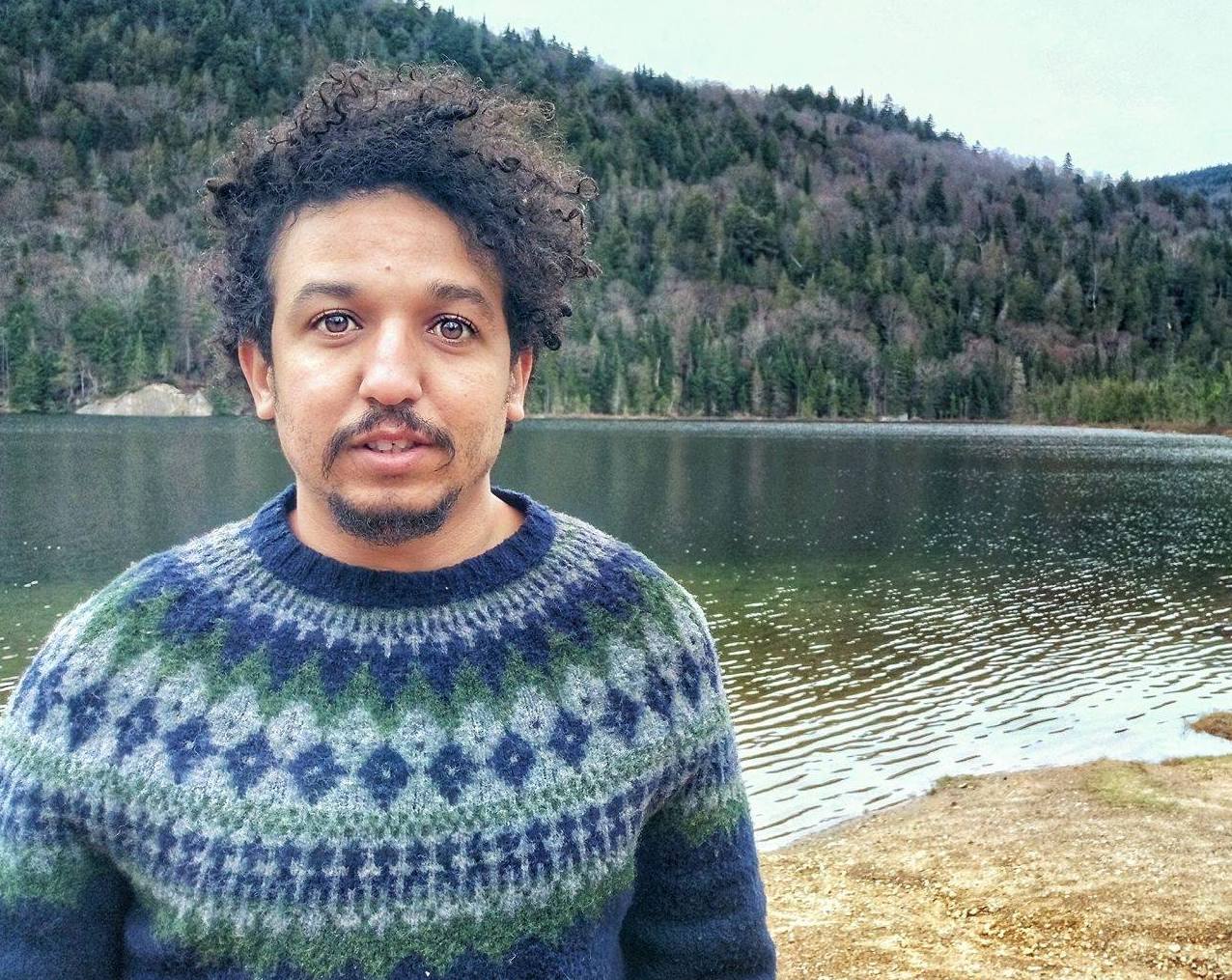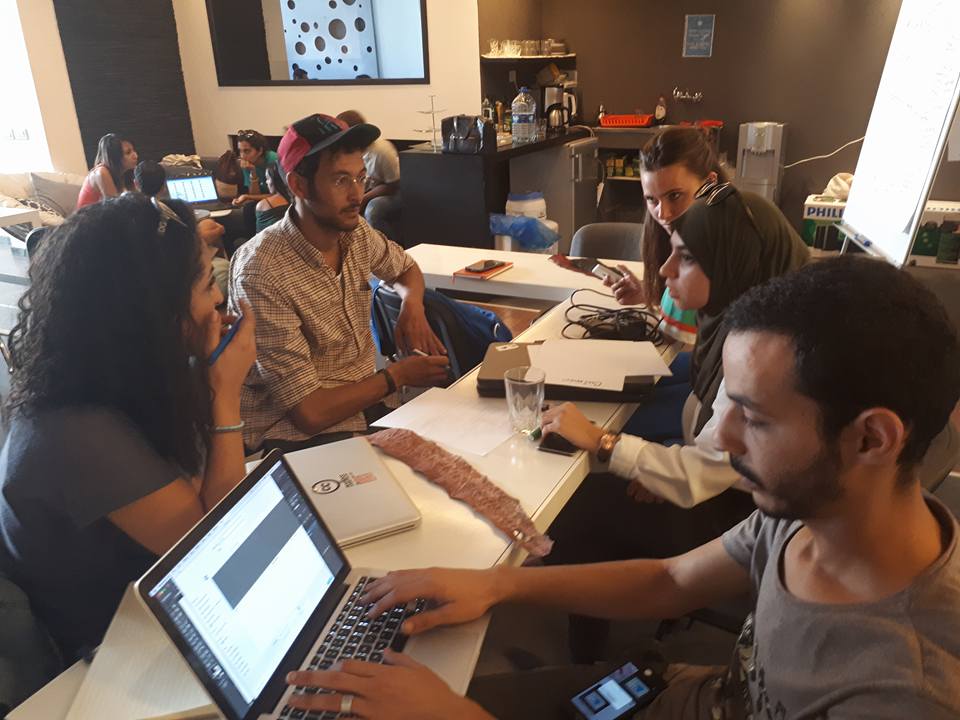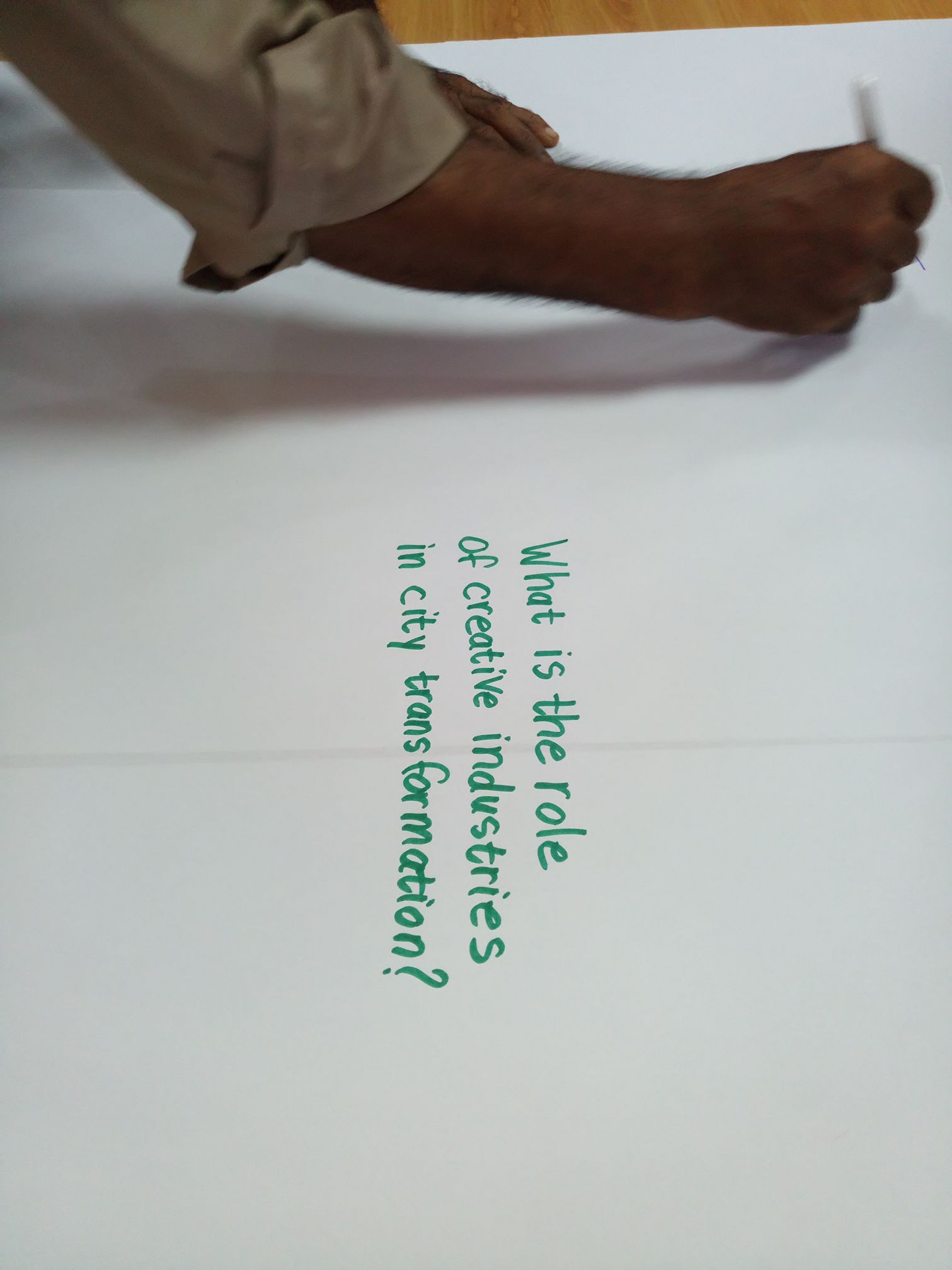Help us protect the commons. Make a tax deductible gift to fund our work. Donate today!

CC BY-NC-SA
Mohamed Rahmo on how copyright reform will boost Morocco’s creative industries. Mohamed Rahmo is the catalyst for Morocco’s Creative Commons chapter and President & CEO of madNess, a non-profit dedicated to promoting creative industries and innovation. Here’s an edited transcript of Mohamed’s story:
The work we do as an NGO is to advocate on behalf of creative industries. We’re all about creativity for social impact. Our vision is to make Morocco a powerhouse in creative industries like graphic design, visual design, video making and video games, and to be a spotlight for creative industries in the world.
Mostly we work with creative people that quit their job and want to start freelancing, but are unsure how. We work with these people to structure their work, and we also have a large database of employers that need these people, like agencies or publishers, so that we can connect them together.
A workshop at the Bidaya social incubator in Casablanca, bringing together videomakers and social entrepreneurs
The other focus of our organization is advocacy. Here in Morocco the copyright act hasn’t been updated for 30 years, which is a shame. We want to advocate about the copyright act, because it’s directly related to creative work.
Take music, for example. If you want to print a CD here in Morocco, you have to pass through a crazy process of copyright. You have to pay a lot of money. A lot of people that want to make music here are very poor; even if they have the money to record, they don’t have the money to pay the copyright.
If they are able to choose Creative Commons licensing, and Creative Commons becomes legal here, we are going to have a revolution in the content industry. Our goal for the next two years is to pass a law to organize Creative Common as a part of the general scope of copyright.
madNess workshop exploring creative industries and green cities
Hacking the consumer mindset
We created a project called CCCC, “Creative Commons Content Creation.” We wanted to host a day where everyone would come together and start creating creative or free licensing or content, and then put it online for free under Creative Common licensing.
We want to “hack the mindset” of people and transform them from passive to more productive, in a way that’s respectful to their life and means of production. And to educate people about Creative Common in a practical way. Our hope is that this will help make our advocacy work and passing copyright reform easier.
The real success is to use Creative Commons to change the mindset of people.
Last year, one of the interesting things that happened for me at the Creative Commons Summit was learning about how others were able to pass laws or challenge copyright policies. And also to share ideas and curriculum. We received help from the New York Public Library, which gave us a curriculum for 3D printing workshops. That’s exactly what we need as an organization that designs education programs: to see how other people do it for copyright or open education.
“The culture of fun”
What is it to share content through the Commons, and what is it to manage common things? We live in a common world. The city is the best invention or innovation humans ever came up with. Now we see how awareness around managing cities is rising. The future of the Commons and a common culture and common world and common philosophy — people are more aware about it.
When you advocate for Creative Commons, you advocate for a direct transformation of your society. You push people to a culture of sharing and a culture of open. If we increase the number of people who share or are involved in sharing — even if they just share a smile with people in the morning when they go out — that means a huge change in society. That’s the impact of the Creative Common on my personal life and my work in general.
This is for me the biggest trait of the commons, though it may sound like a hippie answer: to love other people, to try to understand other people, to share. I come from the belief that the more we are thankful, the more we receive. Whenever I give to someone something, whether it’s material or ideas, the more I receive.
And: it’s fun. I am an advocate of the culture of fun. I love fun. I love to have fun, because when you love what you do, and it’s fun, necessarily there will be a good result, because you enjoy doing your work.
Posted 02 May 2018
